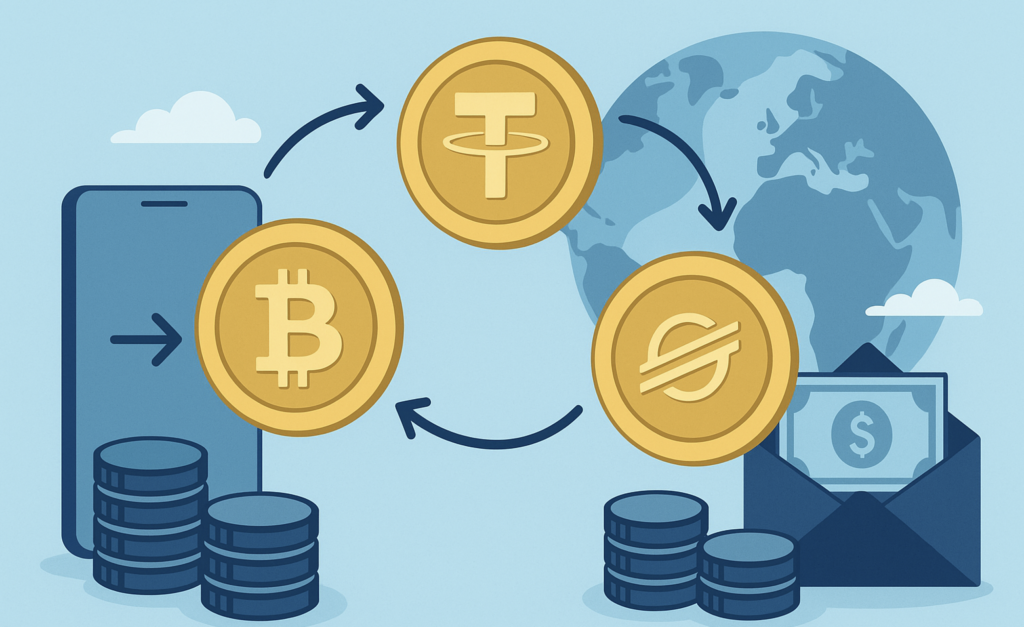
Cryptocurrencies are increasingly being adopted as a remittance tool in emerging economies, offering faster, cheaper, and more transparent alternatives to traditional money transfer methods. A new report released today by the Global Fintech Alliance reveals that over 12% of international remittances are now being processed using cryptocurrencies such as Bitcoin, USDT (Tether), and Stellar (XLM), up from just 3% two years ago.
The trend is particularly strong in regions like Latin America, Sub-Saharan Africa, and Southeast Asia, where high remittance fees and delays in legacy systems have long been a pain point. Countries like Nigeria, the Philippines, and El Salvador are leading the way, with local wallets and exchanges reporting record transaction volumes.
Many companies have launched services specifically targeting the remittance market, often using stablecoins to avoid crypto’s volatility. Traditional financial players like Western Union and MoneyGram have also started piloting blockchain integrations to stay competitive.
Regulatory frameworks remain a key challenge. While some governments have embraced crypto-friendly policies, others are still wary due to concerns over money laundering and capital flight. However, proponents argue that with the right regulation, crypto can significantly improve financial inclusion and resilience in developing economies.
As inflation and currency instability continue to affect many parts of the world, experts predict that crypto-based remittances will continue to grow, potentially reshaping the global remittance landscape.


